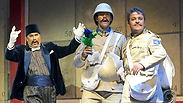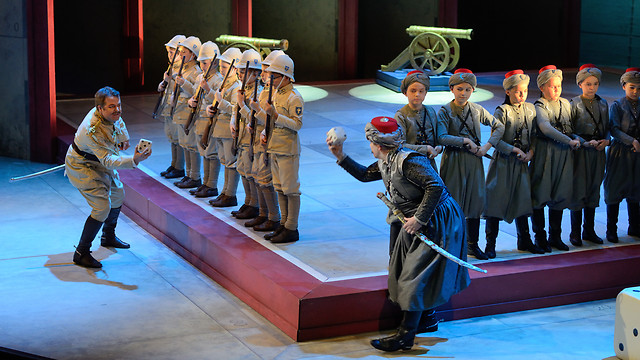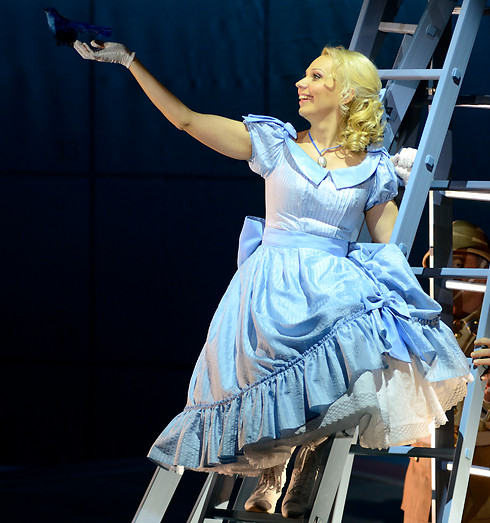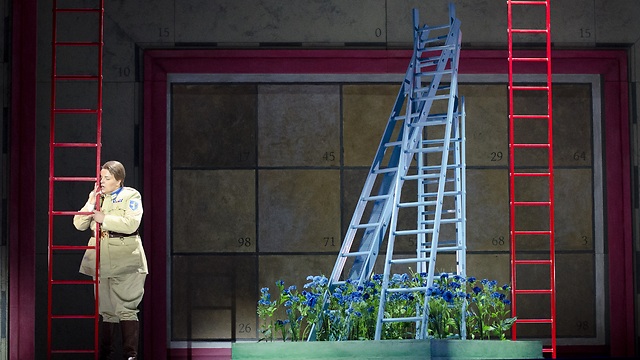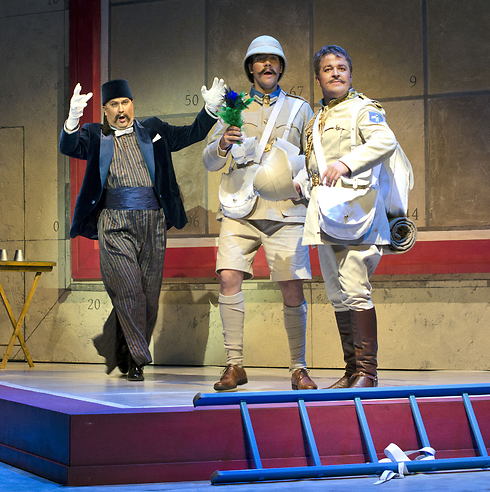In what has become an annual event, the Tallinn-Tel Aviv music festival brings talented Estonian artists to perform two weeks of concerts spanning a wide repertoire: classical -- from baroque to contemporary -- jazz, and rock. And certainly one of the highlights of the schedule during the second half of February was the visitors’ staging of an opera that is all too infrequently presented: Rinaldo, by the legendary George Frederick Handel.
There is much to distinguish Rinaldo: it was Handel’s first opera written and performed in London (in 1711) and the first Italian opera performed in England. It was a big hit back then; and with productions like the one staged by the Estonia National Opera, it could be again.
The plot unfolds in Jerusalem, also a rare locale for an opera, during a Crusader siege of the city occupied by Saracens. Moreover, the libretto is replete with references to the liberation of Zion. Interestingly, the costuming reflects not the battle array of the Crusader era, but rather the uniforms of the armies of opposing British and Ottoman soldiers of the late 18th and early 19th centuries.
The foot soldiers that are the cannon fodder of war are played in this production by the Estonian Boys Choir; it was to be hoped that we would have the pleasure of hearing their young voices -- but alas, the opera did not allow for that pleasure.
Rinaldo does provide for a lilting score, nevertheless -- highlighted by stirring trumpet fanfares characteristic of Handel’s music composed for royalty, and brought to soaring heights in emotional arias sung in bravura performances by the two soprano leads.
Yet it was the imaginative staging that captures the imagination in this performance -- in particular, the strikingly bold blood-red garb of the lady demons, played indelibly by tall and sinuous bald women.
There were moments of amusing levity as well, as when seductive sirens were portrayed as schoolgirl temptresses, or when generals mimed playing miniature harpsichords during instrumental interludes.
One unsettling mystery, however, was the casting of a woman in the lead role of Rinaldo, a heroic, virile figure who is not only a leader of men in battle, but who captures the hearts of two beautiful women.
In response to my question, an Israel Opera spokesperson replied: “Many male parts in opera were written for mezzo sopranos or contra tenors and were sung either by women or men. We call those parts 'Pants roles'; this was common in theatre as well.”
Be that as it may, it is puzzling that the pivotal personage of Rinaldo -- rather than that of other major characters, like Godfrey or Eustazio, for example -- would be cast thus. After all, Rinaldo sings in one of only two romantic duets with a soprano; and in contrast to the beautiful duet sung by Argante and Armida, Rinaldo’s female voice paired with Almirena’s was jarring.
Still, overall, this production was impressive -- not least for the subtle moral messages it conveyed, such as portraying the fortunes of war as much the result of luck as skill and daring; and in the final scene, as the Christian victors sing joyfully in triumph, the background is littered with corpses and casualties being tended to by nurses.
Mark your calendars for next February and the anticipated return of the Talinn-Tel Aviv Festival and, hopefully the Estonian National Opera.













